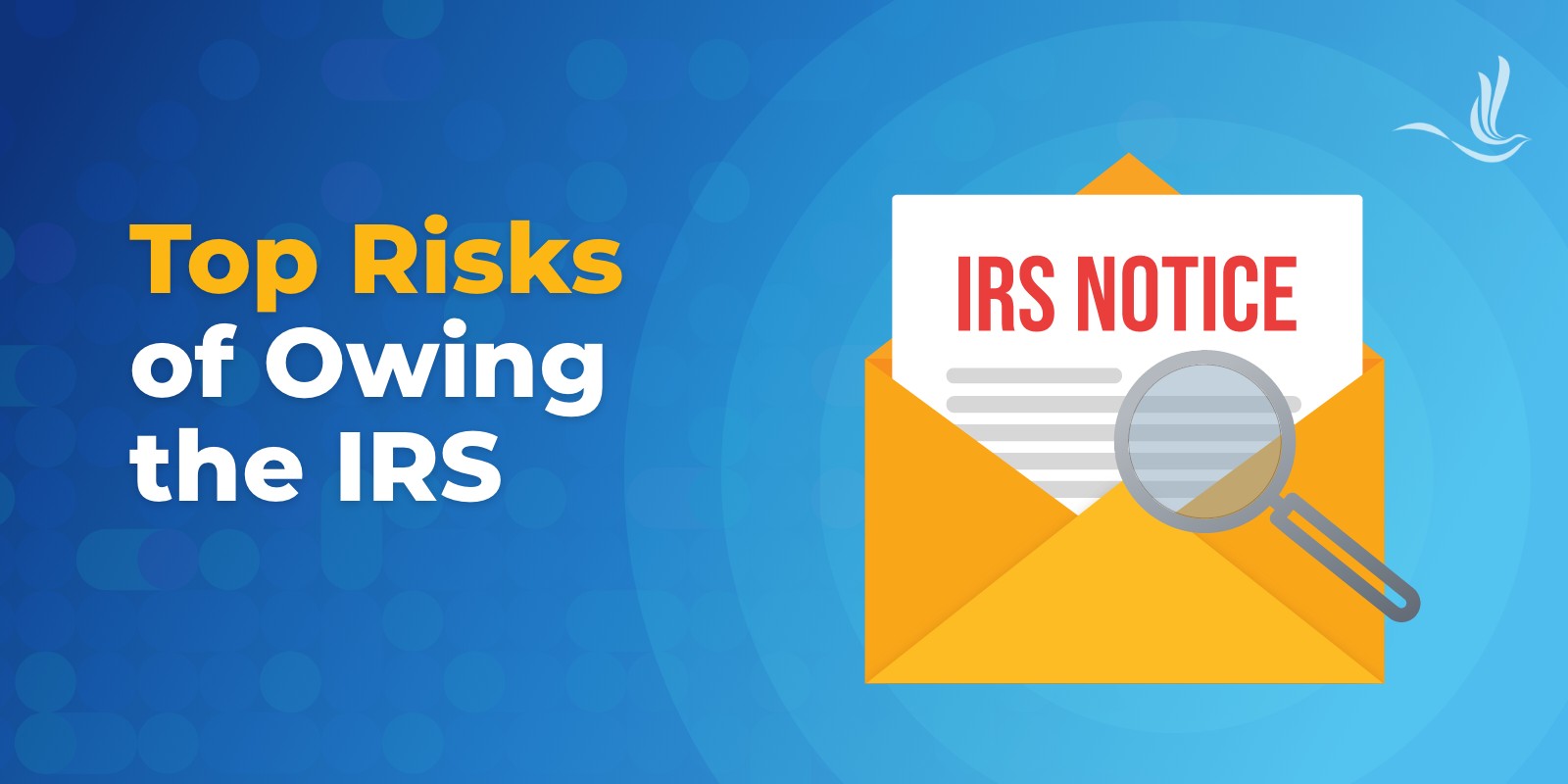Top Risks of Owing the IRS

If you have an unpaid tax bill, you know the stress that comes with owing the IRS. The IRS is a powerful agency with the ability to collect what is owed to them using severe methods. These can include garnishing your wages or levying your bank accounts. With a 10-year statute of limitations, the agency has plenty of time to forcefully collect tax debts. While some taxpayers might want to ignore their tax bills, doing so comes with many risks. Here are some of the top risks of owing the IRS.
The IRS will collect.
The IRS will always warn you of intent to collect or enforce through IRS notices. After these notices have been ignored, the IRS will place you in their Automated Collection System (ACS). This basically means they can issue liens, levy your bank accounts, and garnish your wages. Alternatively, the IRS may turn your tax debt over to a debt-collection agency.
The IRS may file a federal tax lien.
If a tax balance goes unpaid and notices are ignored, the IRS can file a Notice of Federal Tax Lien. This basically lets creditors know that you have tax debt. A lien is a legal claim against a property, usually placed because the property owner owes someone money. Liens can severely hinder your ability to access credit. In addition, they can also damage your reputation since they are public information.
The IRS can seize your assets.
If a tax balance goes unpaid, the IRS will send you a Notice of Intent to Levy. If they do not hear from you after 30 days, they may proceed with the levy. The IRS is known to levy bank accounts, wages, and more. Wage levies, also called wage garnishments, are when the IRS takes some of your paycheck to put toward your unpaid tax bill. The amount they levy will depend on your filing status and number of dependents.
The IRS may also levy your bank account. If your tax balance is greater than your bank account balance, they are authorized to levy the entire account. The same goes for joint bank accounts that you have access to. If you own a small business, or do contract work, the IRS can levy these earnings. If you file your taxes and are due a tax refund, the IRS will keep the refund and apply it to your unpaid tax bill. The IRS will stop levying if you arrange a payment agreement or if you pay your tax bill in full.
The IRS will charge you penalties and interest.
Your tax bill doesn’t end with your unpaid taxes. The IRS will charge you interest until the balance is paid in full. The current rate for underpayment is 7% annually, at least through June 2023. On top of that interest, the IRS will charge a failure-to-pay penalty on your unpaid taxes. The current rate is about 0.5% per month or partial month the balance remains unpaid, for a maximum of 25% of your unpaid tax. The amount is increased to 1% per month or partial month if you do not pay within 10 days of receiving an IRS Notice of Intent to Levy. However, if you set up a payment plan with the IRS, the rate drops to 0.25% per month or partial month.
You may lose traveling privileges.
Under the Fixing America’s Surface Transportation (FAST) Act, the IRS requires your Department of State to deny passport applications and renewals submitted by taxpayers with tax bills of $52,000 or more. The State may also revoke your valid passport or limit your ability to travel outside the U.S.
How Can I Get Relief from My Tax Debt?
Clearly, the risks of owing the IRS are extreme and affect all facets of life. If you’ve been ignoring IRS notices coming through your mail, it may not be long before these risks apply to you. Ignoring your tax issues will certainly not make them disappear. Your best bet is to find a way to work with the IRS to see what your options for repayment are. We know how stressful this process can be, but Optima is here to help you with all of your tax issues.
Contact Us Today for a Free Consultation